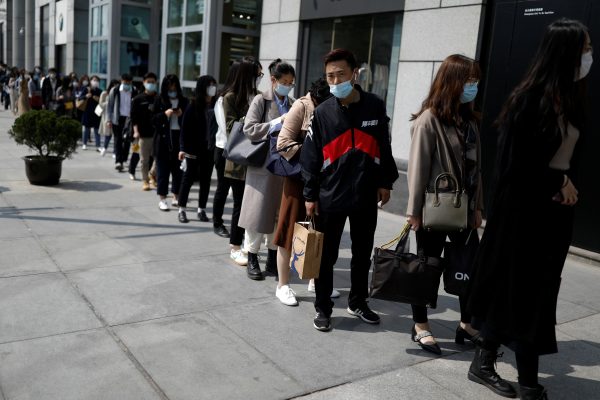Although it has a lot of lessons to reflect on, to its credit, China implemented bold and effective measures to curb the spread of the virus. When lives are threatened, it is legitimate to put the economy on hold. In the wake of supply-side shocks as a result of COVID-19 related economic shutdowns, it is also fair for businesses to consider diversifying supply chains to enhance resilience.
But governments fuelling ‘decoupling China’ rhetoric in the name of COVID-19 are being misleading at best and fearmongering at worst, since China is now emerging from its economic shutdowns and re-opening its factories. For instance, Japan has just announced that it will support its companies to leave China and return to Japan.
But Japan is hit by more than 1000 earthquakes each year, which companies shifting from China to Japan will now have to contend with. This move has nothing to do with reducing supply risk.
International institutions are not immune to ‘virus’ geopolitics either. The World Health Organization’s (WHO) appraisal of Chinese success stories has caused US President Trump to freeze US WHO funding.
Fortunately, geopolitics has not fully stopped functional collaborations. US and Chinese doctors and hospitals are keeping in close contact with each other, even initiating long-term cooperative projects.
Compared to their pace fighting the pandemic, major economies are much quicker in rescuing their financial markets, with unprecedented expansionary monetary and fiscal measures. For the first time, the US Federal Reserve has opened the FIMA repo facility to provide additional dollar liquidity to all countries with US Treasury bonds, including developing countries. Quietly, the phase one US–China trade deal that was reached just before the outbreak of COVID-19 is under implementation and on schedule.
Despite these instances of cooperation, the broader furious geopolitical, ideological and rhetorical fights that have engulfed the international management of the crisis send a negative message to the world and will make technical exchanges harder. All sides will suffer. Chinese students, tourists and businesses will be much more hesitant to study, travel or invest abroad.
Despite the three-headed global crisis taking hold across the domains of health, the economy and international confidence, mending international relations is possible.
First, fighting the virus using a scientific, evidence-based approach should remain the priority for every country. Large-scale macroeconomic policies cannot effectively cushion the slide in stock markets if the virus continues to spread rapidly. All countries should implement more comprehensive quarantine and health measures.
Second, more international coordination is needed to facilitate cooperation on data sharing and vaccine development. Using the momentum of the emergency video summit, G20 members need to quickly take stock of the experiences and lessons from the present pandemic to enable good global health cooperation. Market-driven instruments, like the World Bank’s pandemic bonds, can be scaled up in the future.
Third, the geopolitical ‘weaponisation’ of COVID-19 must stop. Finger-pointing will make no one better off. If governments cannot contribute medical supplies or vaccine development to the global community, they should not erect barriers that prevent their private sectors from doing so. Solidarity will boost market confidence and help economies recover sooner.
Last, major countries need to help mitigate damage in the developing world. Everyone will be impacted by the virus. But poorer countries — especially those with large populations — are more vulnerable to the virus in terms of both health and economic spill-over. These countries are yet to be identified as infection epicentres, probably due to the limits of their testing capacities, but their economies are already suffering.
The IMF has reported that developing countries have experienced an outflow of capital worth US$100 billion since the outbreak of the virus, with roughly 90 countries requesting help.
In response, major economies and international financial institutions have offered an unprecedented scale of assistance. Most recently, all G20 countries agreed to allow the poorest countries to suspend their debt service until the end of this year.
However, as in all countries, making efficient use of resources for fighting COVID-19 should be the key priority for developing countries. Considering the serious lack of capacity in most of these countries, no real progress is possible without effective international coordination.
Multilateralism is key to the health and economic responses to COVID-19. Countries must put aside protectionist rhetoric and finger-pointing for everyone’s benefit.
Ye Yu is Associate Research Fellow at the Shanghai Institutes for International Studies (SIIS) and Non-Resident Fellow at the Center for BRICS Studies, Fudan University.
This article is part of an EAF special feature series on the novel coronavirus crisis and its impact.

